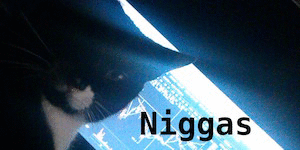For those who are not familiar with the Skinner's Box, it is a box used in studying conditioning. It could be something like a box with 2 lights on the inside, and a lever. When one light shows and you pull the lever, food comes out. When another light shows and you pull the lever, it shocks you.

Social Media today acts as a sort of Skinner's Box. People amalgamate at these "digital town squares" (twitter, facebook, instagram, etc.) to exchange ideas, duh.
A primary difference between coffee houses and pubs of old and social media is that social media, as a non-sovereign corporation, has the right to control NOT ONLY what information can be posted, but it can nudge certain information in order to make it more popular, and suppress other information to squash it's spread. The implications of this ability in an increasingly corporatized world are obvious, and have been since the early 2010's.
Social Media creates an environment in which everyone is using the same medium to exchange information, but are simultaneously separated from each other. Media feeds are personalized to each individual, and you can simply REFUSE to hear someone's ideas by just blocking them. The flow of this information is centralized around a few popular accounts, some news companies, celebrities, and other accounts. This is a stark contrast to the communication of ideas before sprawling media corporations, where you exchanged ideas with various types of people, and there is no immediately apparent metric that is made known to you that allows you to gauge their status, wealth, etc. On social media sites, you can immediately judge someone based on their follower count, like/dislike ratio, comments, etc.
Because of these primary factors, it is blatantly obvious that social media is a sort of skinner's box. The flow of information (stimuli) can be controlled by the social media company, allowing certain information to surpass others in popularity artificially. Because this information is disseminated by a select few individuals, a large majority of people digest similar information. Those who do not follow the status quo are ostracized, which is the negative stimuli, the shock, if you will. Those who do follow the status quo, for example the Elon Musk followers on X, receive positive stimuli for following it.
My primary contention with the digital Skinner's Box is this: the "box" could be self regulating, but corporations have handcuffed the "invisible hand" of the internet to a light post made of gold. Corporations have a now unique ability to advertise to people, and to also have it's own customers advertise for them as well using the same website. This is an obvious bulwark to more free speech, and has helped to create a more consumerist society as a whole.


